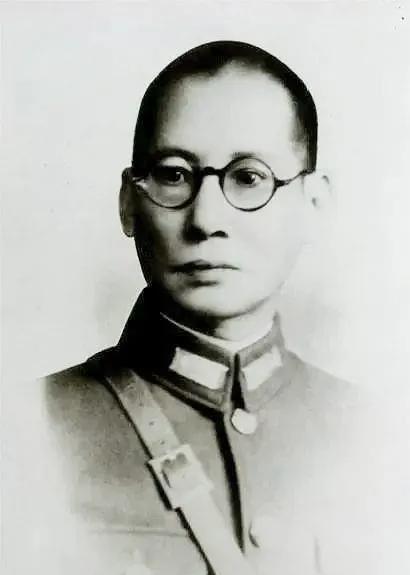At the beginning of the last century, after 37 years from the devastated fall of the Qing Dynasty to the birth of New China, warlords of various factions such as beiyang, gui, direct, feng, Sichuan, and Anhui have appeared.
However, after the death of the "King of Yunnan" of the Yunnan clan due to illness in 1962, he was buried in the Babaoshan Revolutionary Cemetery, which was jaw-dropping for a while, and Babaoshan was the resting place of the revolutionary martyrs of our Party, which was sacred and inviolable, so why did the top level of our Party decide to bury him here?
In 1911, born in a landlord family, Nong Longyun, his father unfortunately died young, in order to earn a living, he then started a business in Sichuan with his cousin Lu Han, and later met Zou Ruoheng, the three brothers agreed to join Wei Huanzhangbu together, and the next year he entered the Lecture Hall with the army to study.

In 1915, the Yunnan Protectorate War broke out, and on the recommendation of his good brother Zou Ruoheng, Long Yun smoothly served as Tang Jiyao's aide-de-camp, and then served as the commander of the First Army and the Fifth Army of the Dian Army.
Until 1927, Long Yun joined forces with the four major envoys of Yunnan Town, ousted Tang Jiyao from power, and successfully sat in the "King of Yunnan", serving as the chairman of the Yunnan Provincial Party Committee and controlling the government affairs and military affairs of Yunnan.
During his term of office, political integrity, financial stability, vigorous promotion of education, social stability, strong national atmosphere, not only that, in 1937 the outbreak of the War of Resistance Against Japan, he only took 28 days to reorganize the 40,000 anti-Japanese army, appointed Lu Han as the commander, in September of the same year rushed to North China.
At that time, in order to prevent the smuggling of materials to aid China, the Japanese army completely blockaded the port cities, Long Yun reacted quickly, and immediately began to build three transportation lines of roads, railways, and airports to lead directly to India; under the auspices of Long Yun, more than 200,000 migrant workers rushed to repair them day and night, and finally repaired the Burma Highway from Kunming to Qicheng, with a total length of 929.4 kilometers, which was the only passage between China's mainland and the outside world, which was of great significance.
In the spring of 1938, Long Yun once again sent troops to Hunan, Hubei, Jiangxi and other places to participate in the War of Resistance, and for the next seven years he always insisted on resisting Japan until the victory of the War of Resistance Against Japan.
In 1945, the enemy's top brass betrayed his faith and detained Long Yun in Nanjing, and three years later he was secretly rescued to Hong Kong by Chennault, then the commander of the air force brigade of the Nanjing Relief Administration, and wrote a letter informing LuHan of the uprising, which eventually led to the peaceful liberation of Yunnan.
After the founding of the People's Republic of China, Long Yun served as the vice chairman of the Southwest Military and Political Committee, an official to the state level cadres, until his death due to illness in 1962, at the age of 78, throughout Long Yun's administration of Yunnan, highly adhered to the anti-Japanese united front, opposed dictatorship, promoted the liberation of Yunnan, and made great contributions to our party, our army, and even the country.